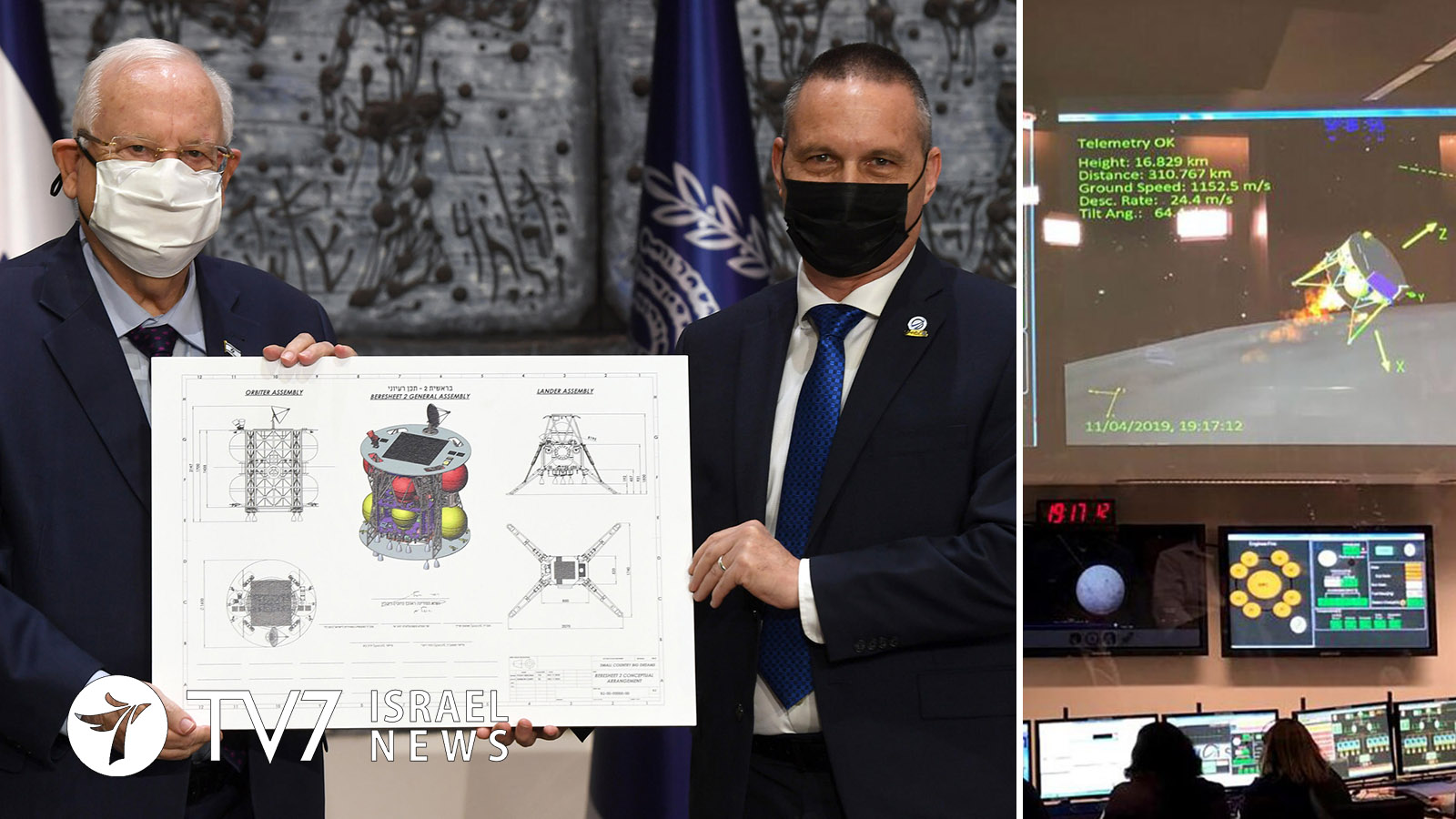Israeli President Reuven Rivlin presided over a ceremony marking the nation’s launching of the Beresheet 2 project, an unmanned lunar landing in early 2024.
Minister of Science and Technology Yizhar Shai, Founder of the Israeli non-profit space venture SpaceIL Kfir Damri, CEO of Space IL Shimon Sarid and CEO of the state-owned Israel Aerospace Industries Boaz Levy also participated in the event.
SpaceIL, in cooperation with Israel Aerospace Industries and the Israeli Space Agency at the Ministry of Science and Technology initiated the Beresheet 2 project, which involves the launching of two landing craft and an orbiter that would circle the moon for 4 years, conducting experiments and collecting data on behalf of school students.
Along with scientific missions and international cooperation, the project is aimed at inspiring young people across the country from all parts of Israeli society. The ceremony included the online participation of schoolchildren, students and volunteers from the 6 space centers around Israel, as representatives of the next generation of engineers, innovators and dreamers.
“We are setting out on a new path, familiar but different, at the end of which we hope to land three spacecraft safely on the moon,” said President Rivlin, adding, “This project will extend the boundaries of human knowledge with ground-breaking scientific experiments, helping us to understand better the universe in which we live.”
Hoping to become the fourth country to carry out a controlled lunar landing, Israel in early 2019 launched “Beresheet” – which is Hebrew for “Genesis” combined with the opening words, “In the beginning” of the Bible. That attempt ended unsuccessfully when the dishwasher-sized robotic spacecraft crashed during its final approach to the moon and crashed on the lunar surface, due to what engineers said was a technical failure.
“Just a year and a half ago, we were here together, when Israel held its breath and looked to the stars. We anxiously watched the Beresheet spacecraft on its historic journey to the moon. We watched its long journey, were in wonder at the researchers and were filled with pride at the Israeli daring and ability that flourished right here and at the groundbreaking work of Space IL,” President Rivlin said, adding, “We were disappointed, and realized that we had to start once again from the beginning. Today, we are setting out on a new path, familiar but different, at the end of which we hope to land three spacecraft safely on the moon.”
The Israeli leader went on to say that, “The Beresheet 2 mission to space is unique. If it succeeds – and I am sure it will – this project will extend the boundaries of human knowledge with ground-breaking scientific experiments, helping us to understand better the universe in which we live.”
“By launching Beresheet at the present time, when the world is dealing with a health crisis the like of which has never been seen, is not to be taken for granted. In the shadow of the virus, it becomes clear to us how big concepts like science, medicine and research can fundamentally shake the foundations on which we live. It becomes clear to us how much we have to learn, not just on distant planets and in boundless galaxies, but here on our planet,” President Rivlin underscored.
Science and Technology Minister Shai expressed pride in partnering with the Israeli Space Agency “in the second chapter of the Beresheet mission.” He also revealed that 7 countries from 5 continents including the United Arab Emirates have expressed an interest in participating in Israel’s “groundbreaking and inspiring initiative.”
“I have no doubt that Beresheet will once again spark our imagination, redefining the boundaries of the possible and securing Israel’s status as a powerhouse of innovation,” he said.
SpaceIL CEO Sarid commented that, “We are aiming high with Beresheet. Not just to outer space, but to the long-term future of the State of Israel – wWe will do it by raising curiosity and hope, the ability to dream and realize and through strengthening technological education, research, science and engineering for Israeli students. By doing so, we will ensure Israel’s technological mobility for today’s schoolchildren who are tomorrow’s scientists and engineers.”
Israel Aerospace Industries CEO Levy said that the partnership with SpaceIL is a “natural,” which has “reached spectacular achievements in civil space missions, swept up the whole country and many around the world with the “Beresheet effect” and ignited a spark of interest in science and technology in Israeli children.”
Like the first project, Beresheet 2 will cost around $100 million, that has been raised from international partnerships and donors.
